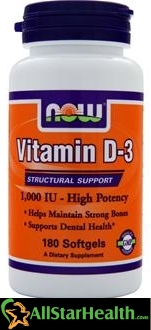Vitamin D Deficiency Causes Childhood Asthma

The sunshine vitamin may prevent the development of childhood asthma.
A review of previously-published research finds some interesting links between vitamin D levels and the development of childhood asthma. Find out what the researchers had to say in today’s AllStarHealth blog.
It makes sense that vitamin D would be play some role in the development of asthma since Vitamin D levels – in both expectant mother and child – is important for the growth and normal maturation of lung tissue. Most readers will be aware that exposure to bright sunlight is how we naturally produce vitamin D, but modern lifestyles make that impossible for the vast majority of children and adults, except on an occasional basis. Unfortunately, we need new vitamin D every single day, not just occasionally. So that’s why we consider vitamin D supplements essential for virtually everyone. The authors of this review agree, point outing that vitamin D deficiency is common even in children, and even areas that get a plenty of sun.
This review concludes straightforwardly that vitamin D status does in fact have an impact on asthma:
Improving vitamin D status holds promise in primary prevention of asthma, in decreasing exacerbations of disease, and in treating steroid resistance.
Well there’s only 2 ways to improve vitamin D status: inexpensive supplements, or exposure to UN radiation of sufficient intensity and duration. On a sunny summers day, that’s easy to achieve. But what about those living in higher latitudes, or in winter? At those times, your choices are down to UV lamps or supplements.
It’s interesting how this study purports benefits for “improving vitamin D status”, but stop short of recommending vitamin D supplements. Instead, they call for future studies to identify what the optimal levels of vitamin D are, as well as future studies to identify the mechanism. But as common and difficult to treat as asthma is, why not encourage mothers and children to use vitamin D now while we’re waiting around for these future studies? Vitamin D’s safety at supplemental levels is not in question, it’s extremely affordable, and widely available in formulas for both mothers and kids.
- Posted in Health, Nutrition and Science News
- 1 Comment





